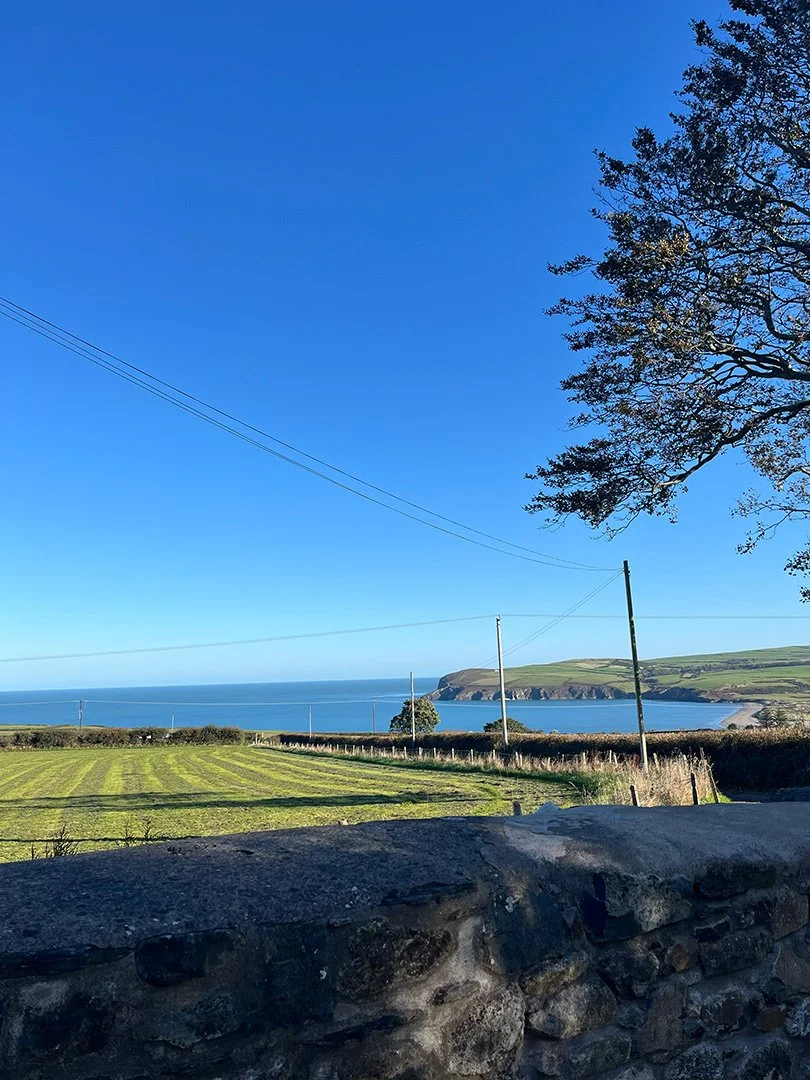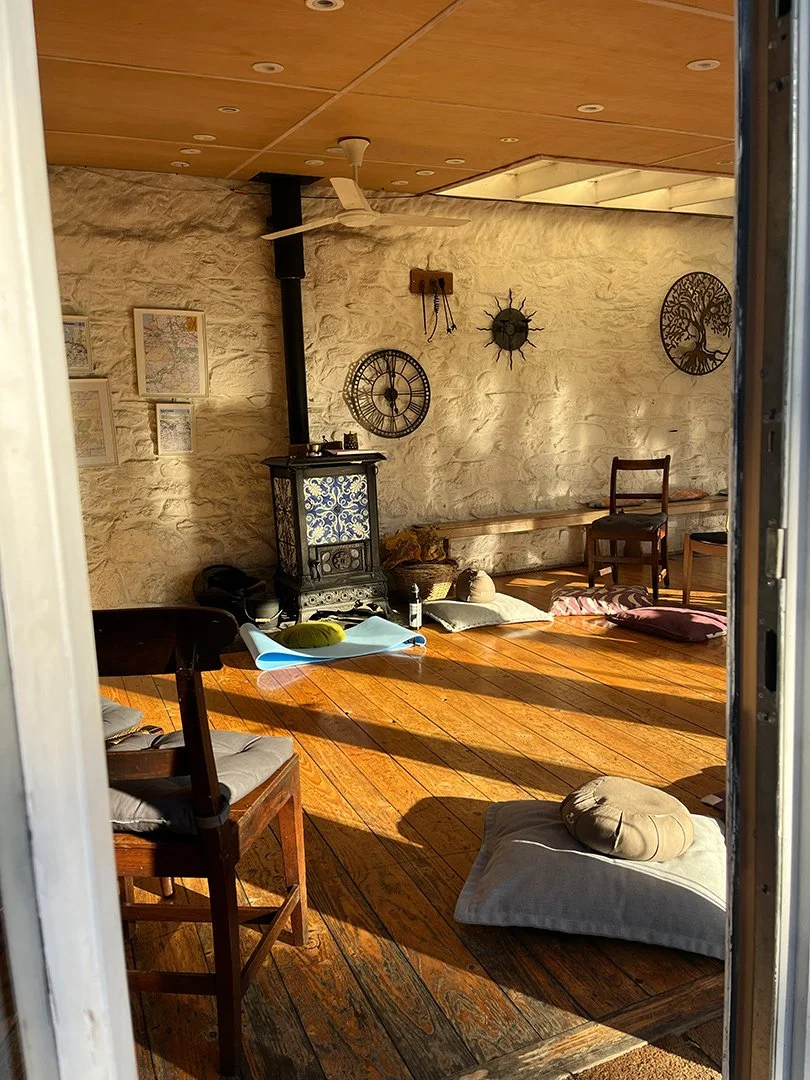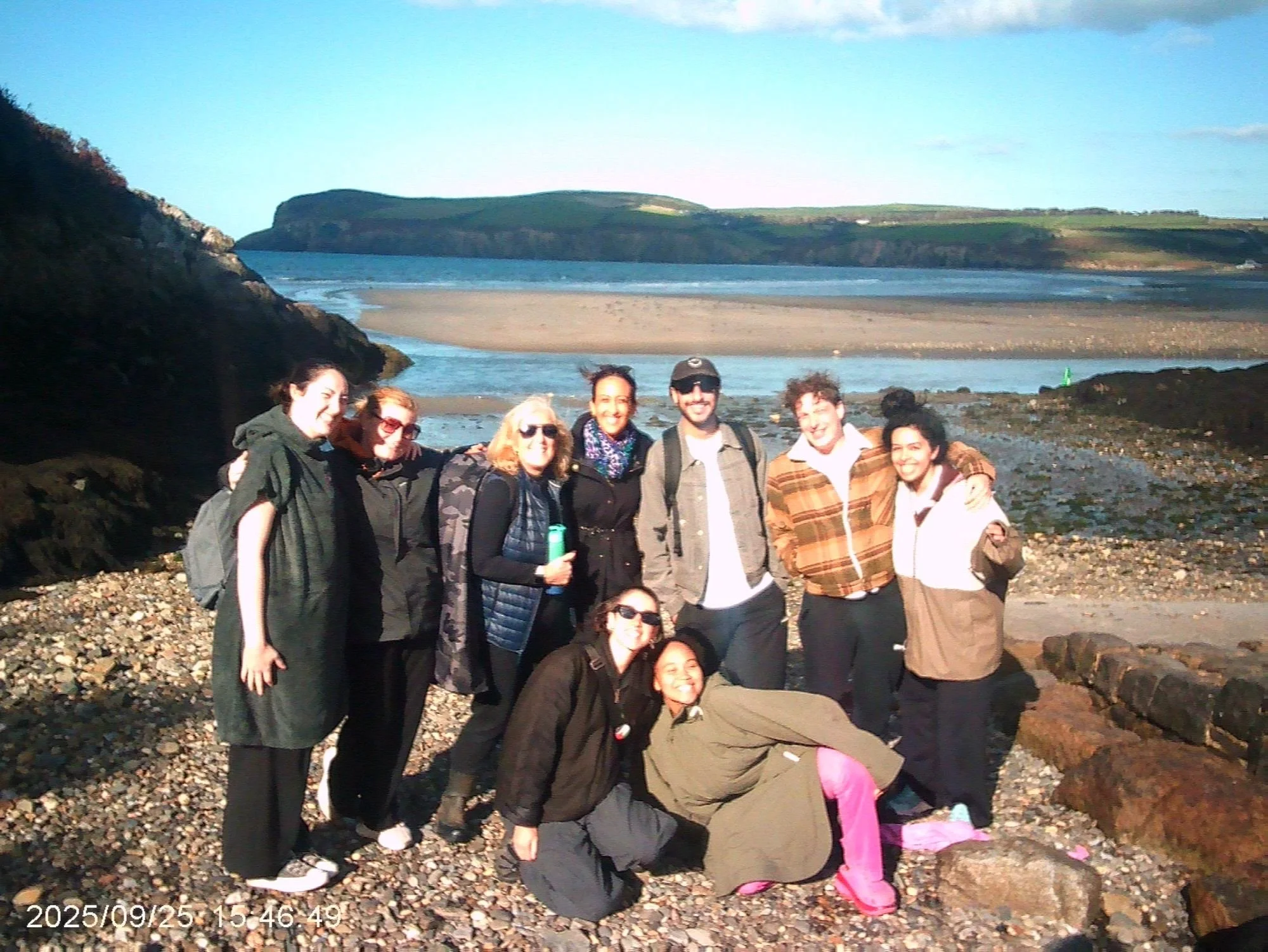Notes on Wellness, Rest and Vulnerability
By Safina Center Community Organizing Fellow Mikaela Loach
Retreatants post-cold Welsh sea swim! ©Emily Oliver
I write this blog quite swiftly after a return from a (mostly) silent and completely offline and phone-free writing retreat in the Welsh countryside. My hope for this week was to finish my next book proposal (which I did!) but I ended up leaving with far more than that…
This retreat was not just about writing, but wellness and self-compassion too: two things I have veered deliberately away from over the years. You might wonder what my aversion is to these two things that probably seem (read: are) vital to sustainable world-changing work, such is the climate justice organising I have dedicated my life to. And you’re right: before this retreat I was still the first to tell anyone that to make our work truly sustainable we had to also look after ourselves, each other; our collective wellbeing. On my podcast YIKES with the brilliant Jo Becker, we did a whole episode years ago on “Rest For The Many” and the importance of the idea of “Rest Is Resistance”. Its popularity grew from the legacy of Audre Lorde’s words, on her experience with breast cancer which ultimately killed her, in her book “The Cancer Journals,” and was built on by Tricia Hersey’s work under the banner “The Nap Ministry.” I’d quote Lorde and Hersey, I’d tell friends about the importance of caring for ourselves as a part of a long struggle, I'd thrown myself deep into therapy and other healing practices: but if I was invited to a wellness retreat, meditation session or group sharing circle? I was out. I felt like my time was wasted on “wellness” whilst the climate is being destroyed by fossil fuel capitalist interests and Israel are ethnic cleansing, torturing and genociding the people and lands of Palestine. It even feels hard to write this post now, knowing how relatively privileged I am as someone with financial stability living in the UK distant from the frontlines of the most intense struggles for life and dignity.
Whilst I was and am passionate about the need for us to be healthy in our struggle and the importance of compassion in this, I still saw a lot of practices that strengthen that compassion for the self as detached, individualistic, bourgeois or mainly “hippy white people bs”… It’s not that there is no truth in this: I still stand by the fact that a lot of people who focus so much on wellness do individualise many things that should be collective, and many a world-destroying Billionaire has gone on a silent wellness retreat simply to feel better about themselves, and have not subsequently redistributed their wealth and power, stopped exploiting their workers or changed their fundamentally unsustainable lifestyles or stopped meddling with democracy. It is unfair and wrong that these practices are often only accessible to a more financially and time privileged few. “Rest Is Resistance” has been coopted: watered down to be marketable and palatable for the elite class, taken on as the mantra for “white women who engage in no other acts of resistance” as magazine “Reductress” aptly put it in a spoof headline. It’s one of the many ways Lorde’s deep, revolutionary and transformative words have been reduced and misunderstood (another example is her essay The Master’s Tools Will Never Dismantle The Master’s House—I explored the misunderstanding and misconceptions around what Lorde meant in this essay in my book It’s Not That Radical). All of this was exactly why I rejected and avoided this world for so long, despite being someone whose work—particularly the public facing nature of much of it—makes self-compassion absolutely necessary for survival.
It was Holly Rigby—and her meditation facilitator for this retreat, Viren—who managed to open me up to this. As a Marxist and long-time organiser in the Palestine movement, I could not dismiss Holly’s expression of wellness. Her self-compassion was survival: her meditation was not drifting amongst the clouds, but rooted in the soil. The wellness practices we did were done together and seen as connected to each other, intertwined. In that short week we became a community. Her vulnerability and strength blew me away because it was clear that this was something cultivated as a part of understanding the stakes we are facing: from genocides, class exploitation and climate disaster. It was not detached from this: it was deeply rooted in it. Over the days on this retreat, over the many hours of silence, meditation and breaking down of barriers, my vulnerability rose to the surface in a wave that felt at first like it would drown me. But then I learned to breathe underwater. For the first time I think I actually understand what Franciscan friar Richard Rohr means by that, despite having read his book on the topic years ago. I am finally beginning to truly and deeply understand what Jess Mally means in their Healthy Humans framework (which they teach a module on for our AWETHU School of Organising curriculum*).




Vulnerability is terrifying. Especially to strangers, especially to those of us who have experienced traumas related to this (I sadly have many). But now I do believe and understand that this vulnerability is key to transforming our world. With vulnerability, and spaces and practices conducive to welcoming it, we see each other as fully human and thereby see parts of ourselves reflected back. I deeply believe that part of what upholds violence, both structurally and interpersonally, in our world today is dehumanisation, individualism and alienation from each other and our honest innate selves. Self-compassion and wellness, practiced and taught in the way that Holly, Jess and Viren do, are key to tackling these at the root and building a better, safer, more loving world. I’m grateful to feel that now and I hope you do or will too.
This blog was more reflective than updating on what I have been doing these past months. If you’re interested in seeing what some of that has looked like, I’ve shared much of it on my Instagram page @mikaelaloach—including starting delivery for our AWETHU School of Organising on Black Liberation & Climate Justice for 2025, speaking at Glastonbury Festival, going on US book tour for It’s Not That Radical, reporting on the International Seabed Authority’s meeting in Kingston Jamaica, more work reporting on the beach access issue in Jamaica and speaking at The Guardian’s Climate Assembly.
*These are quite well timed reflections as Jess, co-Director and co-Founder of AWETHU with me, and Evie Muir, author of Radical Rest, will be delivering this “Healthy Humans” module for our AWETHU 2025 cohort.

